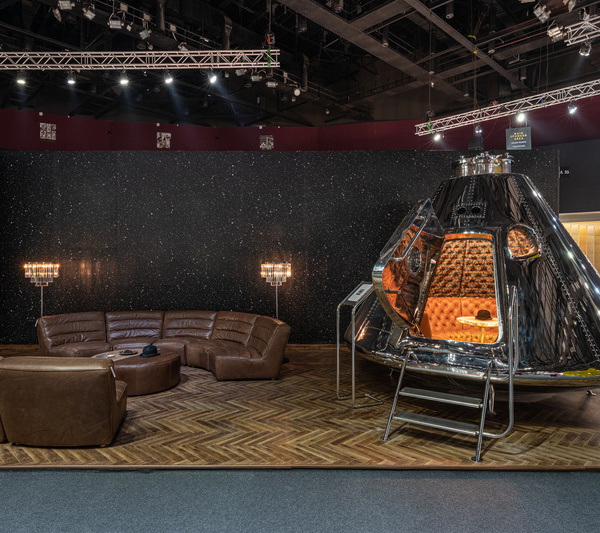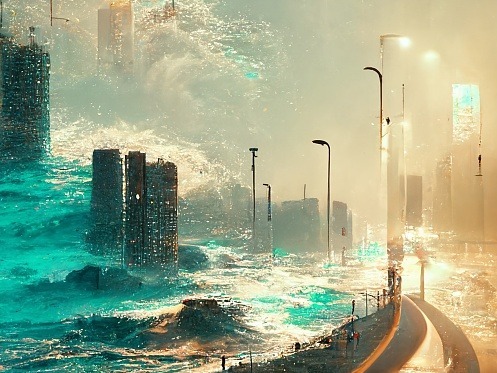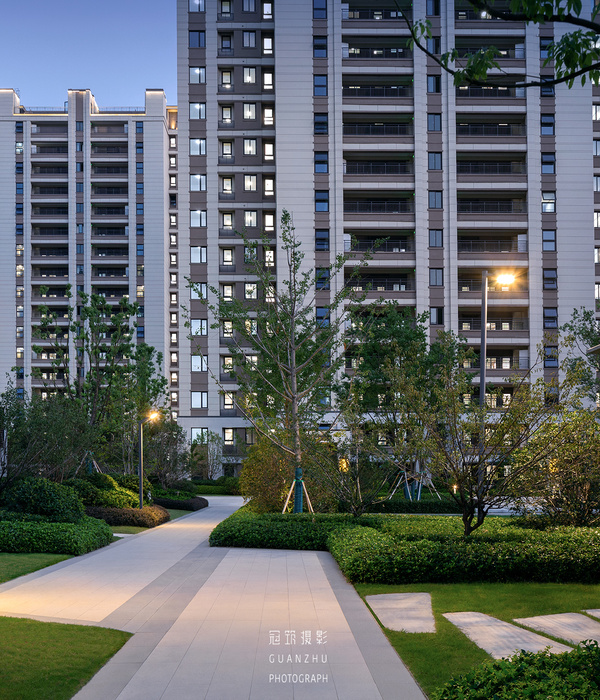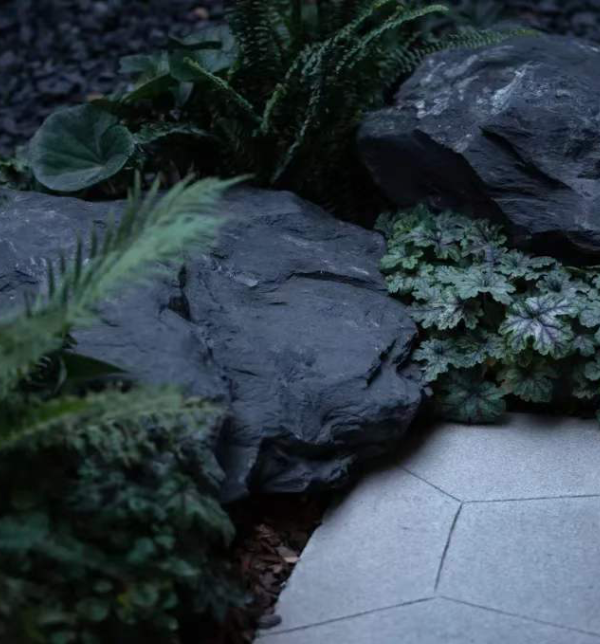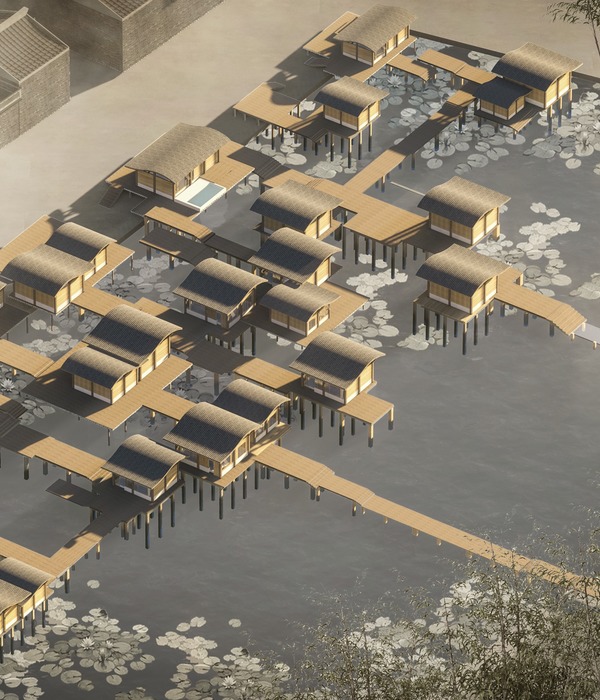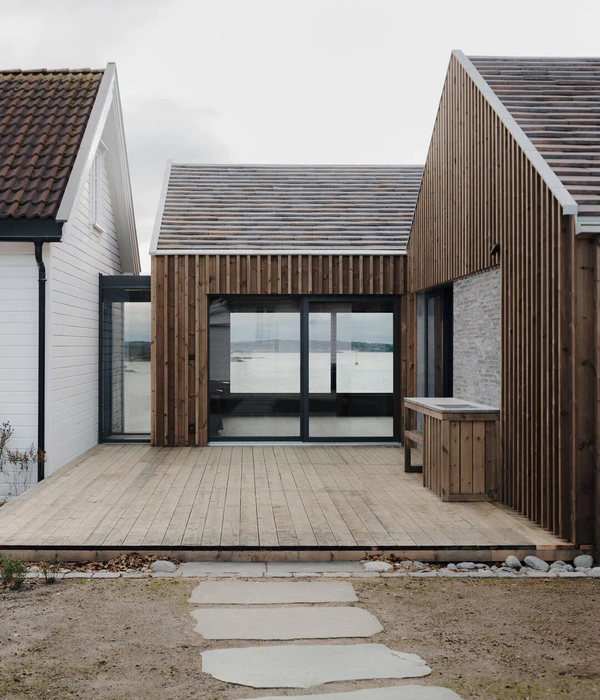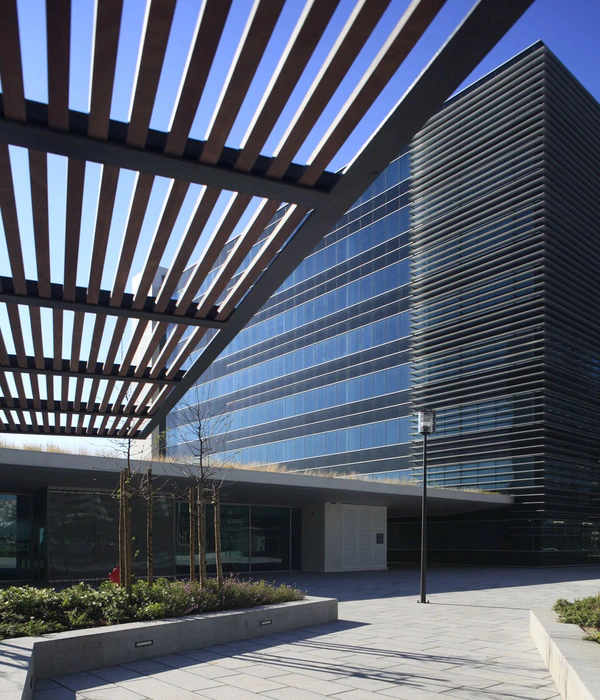The city waterfront landscape
设计方:Arkitektgruppen Cubus AS
位置:挪威
分类:滨水
内容:设计方案
图片:12 张
摩城的滨水区在这个城市有着重要的功能,这里一直担任铁和混凝土等地方产业生产的水运工作,是城市最主要的两个交通系统之一,另一个是铁路系统。铁路轨道贯穿全镇的中心并作为城镇和水域之间的物理屏障,只有通过桥梁或地下隧道通过。海滨建造成为影响城市环境的因素,这里展现了一个城镇强大的工业社会形象。
主要设计理念:滨海区的设计理念是:新空间模块设计,各个模块中包括生产空间、学校、绿地等。设计始终依据当地的材料和生产技术,它被看作是一个连续的本土设计和创新过程。人们可以想像,每年一个模块的设计和实现,海滨将成为创造与更新的舞台,沿着海滨散步每次都能体验新的感受,刺激新的想法。概念 SEAFRONT 公园:保持该地区的特色,注入创新和本地生产的空间元素。随着时间的推移形成一个统一体,提供了一个广泛的休闲,娱乐和灵感。海滨长廊步道:海滨长廊步道既有车行功能,也可步行或骑自行车,步道平行于大海延伸。海滨长廊将保留当地植物群和动物群,展现自然景观。靠近内陆与建筑相接的区域将打造成植物花园,以开花植物为主形成边境花园。最南端的区域将被布置树木,草坪,道路和照明,人们在绿色公园景观中散步和玩耍。
海滨长廊 3 个主要类型的空间模块。按照地形,针对模块不同的定位,用不同的景观方式呈现各具特色的组团或景观序列。
长长的挡土墙可以作为一个文字画布:摩城,也许是一首连续的历史的诗,展示工业社会当中,滨海区是城市一个组成部分的故事。
码头前的车库,设计师设计一些长椅和俏皮的元素,在钢厂活动区,设计包括球场,沙滩排球场和起伏的绿色景观一条街。这一切的一切围绕着钢厂区域,从而提供了一个广泛的活动范围。
长廊有些模块的步行道与有着海边野花和芦苇的天然栖息地接壤,并可以避风休息或驻足游乐。
照明设计:为了利用这里自然夜间明亮的月亮,星星和北极光,减少了人工照明的使用。聚碳酸脂管与 LED 照明被镶嵌在整个道路,像黑暗中发光的铁索。公园:在海滨长廊的最后,设计师建议可以构成未来需求的开放式公园。一般以草坪,树木和照明形成可以散步,骑自行车,游玩等的绿色空间。公园面向大海,树与树之间细长的钢铁 LED 柱随之摇摆,岸边海浪拍打,十分美妙。
译者: 团小组
DESCRIPTION OF MO I RANA
Mo i Rana has always had a primarily functional relationship to the fjord, which has been one of two major transport systems serving the local industries of iron- and concrete production, the other being the railway. The town is located far inland and the fjord has always served as a main connection with the rest of the world. The railway has served as the other main pulse connecting the town to the east and south, in addition to the two main roads E6 and E12. The railway track runs straight through the centre of the town and acts as a physical barrier between the town proper and the fjord, only surmounted by bridges or underground tunnels. This prevents the establishment of a physical and programmatic continuity linking the two.
APPROACH
The contrasting qualities of a town cut in two can be seen as a positive asset. The two halves are in many ways very different and even opposing in character, and their potential for development is also apart. You could say that this duality is precisely what consists the very identity of Mo i Rana. Accordingly each area should be developed so as to retain and develop the quality that makes it different from the other half, and at the same time establish connections between the two. This is the main concept of our proposal in which we seek to create a dialogue between two very different areas: The big open natural landscape on the seafront and the dense man-built industrial environment on the urban side of the railway line. This duality will provide a wide and exciting range of urban and natural experiences in interplay:THE SEAFRONT
We propose the image of a dual chambered heart a fitting picture of the two halves of Mo i Rana. They share the same bloodstream and depend on each other. They have different purposes and accordingly are “designed” differently, yet interact and function as a whole. Together they provide the beating pulse that is the life of Mo i Rana.
IDENTITY
Mo i Rana’s economy has rested mainly on the industrial processing of steel and concrete. These industries have been of major importance for the growth and identity of the region as a whole, and has had a dominating influence on the built seafront, since this is where the factories lie. The image of a powerful industrial community is central to the identity of the town as a whole.
A NEW JOINT EFFORT
Rather than impose a design strategy and products from elsewhere, would like to utilize the material, design and production knowledge of the local industry in our project for the seafront park and promenade. Our proposal involves the design of a series of large scale spatial modules that is used to transform the local terrain and microclimate at a given spot to provide places for shelter, sitting, reclining, access, connection between levels, play and sport, as well as evoke curiosity. By allowing local knowledge and technology to be a design parameter, the project will be deeply rooted in the local identity and an expression of the pride and capability of the local community. It will also allow for innovation in the local industry by establishing a new production line for use in the seafront project. It is our aim that the use of traditional technology and innovative design will strengthen the sense of identity and pride in the project and perhaps inspire a new wave of regeneration for both the industry and the town.
GRADUAL DEVELOPMENT OF PROJECT
Our advice is not to aim to develop the whole promenade at once, but rather to concentrate the efforts to a few strategic spots where a new activity program can create a transformative dynamo and a sense of change The skating arena would be a good place to start, since the area has a good location between housing areas, the town and the seafront, and entails a programme that is dynamic and rejuvenating.
The design of the new spatial modules should involve local industry, schools, designers and landscape architects, and should be thought of as a continuous local design and innovation process that develop over time rather than as a finalized series of products.
One can imagine the design and realization of one module annually, either chosen by the work group or as a result of a local competition, and each project adapted both to the chosen spot and to the desired programme. In this way the seafront will become an arena of cooperative creativity and renewal, and every walk along the seafront spur new ideas and projects. In time the seafront will be a monument not just to good local design but also to the close knit industrious community that created it.
MAIN DESIGN CONCEPT
Locally produced spatial modules developed in a local think tanks and based on local materials and production skills.
CONCEPT FOR SEAFRONT PARK
Maintain the identity of the area but infuse
摩城滨水区景观效果图
摩城滨水区景观总体规划图
摩城滨水区景观图解
{{item.text_origin}}

